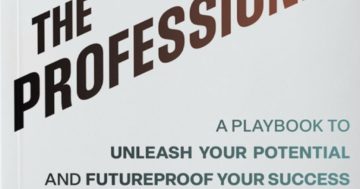Joe Hart* says workers should stop focusing on themselves and look instead to what others are feeling and how they are experiencing them.
 Have you said, or ever heard anyone say something like I don’t care what people think of me or I know I’m not everyone’s cup of tea, but you can’t please everyone?
Have you said, or ever heard anyone say something like I don’t care what people think of me or I know I’m not everyone’s cup of tea, but you can’t please everyone?
Most people would interpret them as signs of confidence or good self-esteem, but as an organisational psychologist I cringe when I hear them.
Why? Because the truth that sits beneath these statements sounds like I can’t be bothered with understanding how others feel, think and behave… their perspective doesn’t matter.
I’m open to the idea that there are some circumstances where it might make sense to “not care” what people think of you, but I think it’s unlikely to be effective in the long term.
Some might argue, that there are some exceptions, such as elite athletes.
They might say it’s essential to “not care”, but all of the most loved athletes in history have demonstrated care in how they are being experienced.
I personally struggle to think of any examples where an arrogant or dismissive attitude is favourable.
Fundamentally, the strength of the relationship you have with a person is directly proportional to the degree to which you care about them.
How can I see myself?
To gain perspective, the two main skills that everyone needs to master are empathy and experiential awareness.
That is, one’s ability to understand what somebody else is feeling, and the experience they are currently having in your presence.
The problem is, when we need perspective most – like when we are in the middle of a crisis – we often struggle to find it.
The solution, while counterintuitive, is to stop focusing on yourself and look instead to what others are feeling and how they are experiencing you.
This will give you a new, more true, perspective and encourage you see yourself how the rest of the world sees and experiences you.
Said another way, people will experience you as empathetic and compassionate when you take the time to understand their experience.
Perspective is the key
Perspective taking, in my opinion, is one of the most useful tools any of us have in our life-skills tool belt.
Equally, to lose perspective is one of the greatest handicaps one can suffer.
Being able to shift perspective helps us re-focus in times of crisis, understand somebody else’s behaviour or point of view, see new possibilities for old problems, and learn from our mistakes.
Given that the ability to shift your perspective is so powerful, I reckon it’s an ability worth practising.
How you see yourself directly influences how others experience you.
Not caring how others experience you can be exemplified by someone politely letting you know that you’ve got something stuck between your teeth and you responding with, “Thanks for letting me know, but I really don’t care”.
Not exactly the best way to win friends and influence people! Whether it be feedback about our poor body language or our overuse of the word ‘ummm’, we all need perspective at times so we can see ourselves how others are seeing and experiencing us.
However, you can only achieve perspective if you’re open to seeing yourself from another’s point of view.
Why is this so important?
The view others have of you is shaped by the view you have of yourself.
It’s quite simple: how you see yourself shapes your behaviour.
How you behave shapes how people see and experience you.
As a leader, manager or parent, this forges the culture of the organisation, team or even household you are leading.
Your success as a leader in any context is directly related to your ability to empathise.
When you take the time to understand what your key stakeholders are feeling, you’ll also start to take responsibility for the behaviour that shapes their view of you.
Others’ view of you is a reflection of how you see yourself.
If you don’t care or can’t be bothered to understand what people think, their experience and perception of you will be someone who doesn’t care, can’t be bothered, and doesn’t want to understand them.
This does not bode well for anyone wanting to have a productive, engaged life.
To avoid this outcome, try shifting your focus to put others at the centre of your universe and you’ll have no option but to demonstrate empathy and understanding.
*Joe Hart, author of True Perspective, is an Organisational Psychologist and founder of True Perspective; A leadership development practice.
Find out more at www.joehart.com.au












